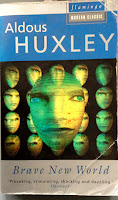How has the internet affected our sense of space?

This was originally posted as a "viewpoint" at Aeon Conversations The internet has undoubtedly narrowed the spread of our geographic space. But does all this automatically translate to the world becoming better place, us better people? F rench Historian Fernand Braudel divided time into three scales: geographic, social (or sociological) and individual. We could apply such a triune categorisation to space too. We refer to geographic space when we say New York is around 10,000 miles from Sydney. Social space could refer to any space (more metaphoric than physical) that separates groups of humans from each other, be they family units, clans, ethnic groups, nation states or other artificial collections. Individual space is (more or less) what we commonly call personal space (my car, my house, my money). Murrumbidgee Rice Farm (CSIRO, 1991, Creative Commons) The internet has undoubtedly narrowed the girth of our geographic space and has helped us overcome “the tyran...



